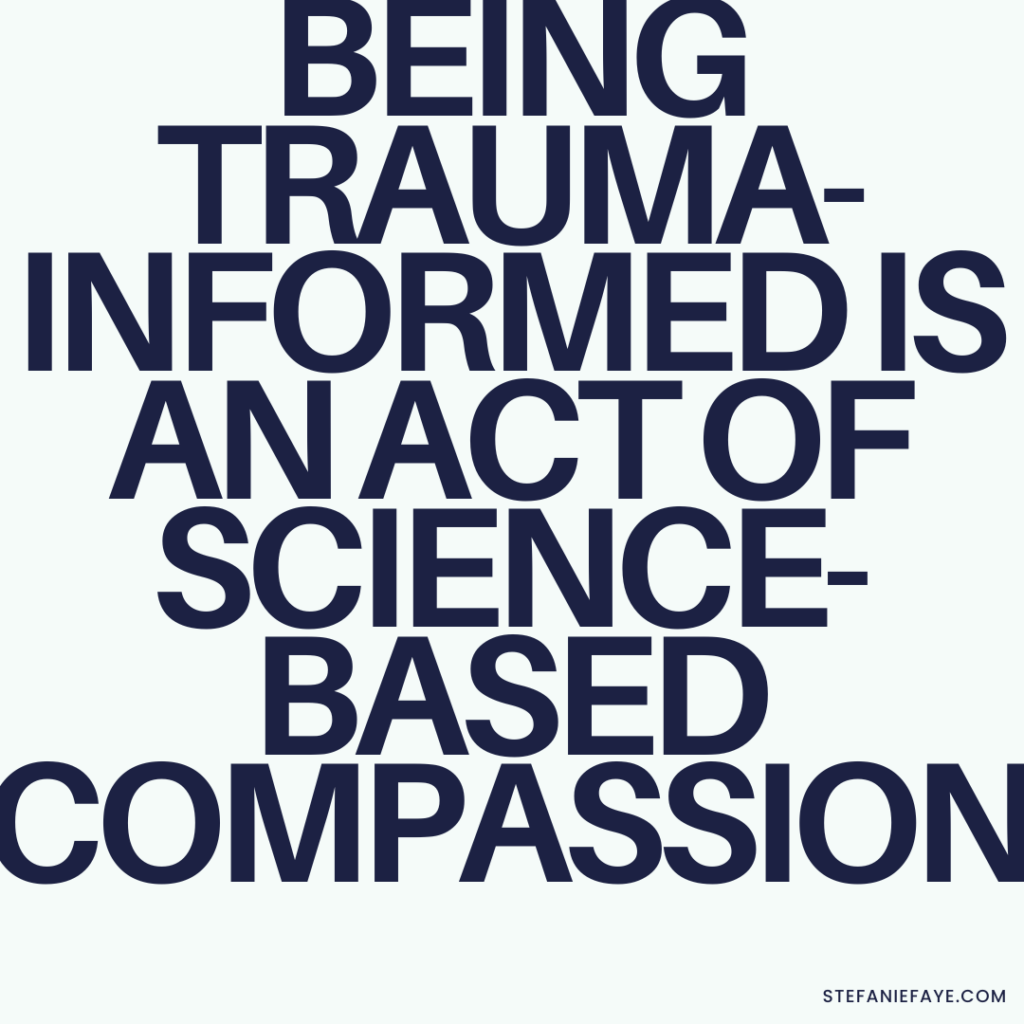When you hear the term ‘trauma-informed’, what does it make you think of?

Some people believe that if their work is not specifically related to mental health or an industry that talks about trauma and post-traumatic stress, that the subject may not be related to what they do.
This is simply not true. As a species, trauma is an inevitable aspect of understanding human neurophysiology and behavior. This is because trauma does not only affect a specific person who experiences a specific event. It impacts the nervous system and unconscious micro-gestures and frequencies that ripple out in many directions and across generations.
Being trauma-informed is an act of science-based compassion.
When we understand the neurobiological impacts of trauma, and the 'sociobiological insults' to our psychological safety - we increase our understanding of human pain.
Some important questions to ask are… why are families as dysregulated as they are? And how are systems that are in place right now playing a role in the family and community experience and perpetuation of dysregulated internal states and social behaviors?
The root of this question is tied to:
- The need for a deeper and wider understanding of collective trauma
- A misunderstanding of what is NEUROLOGICALLY needed for accessing a sense of psychological safety
- A
- the effects of hierarchical structures in society and how this has played a role on in aspects of human behavior
- a collective sense of hopelessness or lack of mobility (which is tied to dominance/submission dynamics)
- exposure to violence -whether directly or indirectly - throughout one’s lifetime or ancestral timeline
And this is why -no matter what industry we are a part of - we must become 'trauma-informed' citizens.
Violations to our psychological and physical safety have a lasting impact on our nervous system.
These neurological abuses affect our nervous system in ways that physically appear as signals that we unconsciously project to others. They also disrupt how we receive the signals others send to us. And can perpetuate unresolved patterns and traumas from our past.
The more we understand how human history has impacted the signals we transmit and receive from each other...
the more 'data' our complex intelligent brain-body system has to work with to find new ways forward for us to heal and create psychological safety with each other
This is why an important part of my work with clients is to include a systems thinking approach to help integrate how a lack of safety can impair social dynamics and brain functioning, no matter what type of interaction or environment we are in. Safety (physical and psychological) are neurological necessities for HUMANS to function properly and achieve wellbeing.
With my neuro-coach clients, we connect these dots together to see how a science-supported view of trauma, healing and psychological safety can enhance their work.
I also cover this topic in various podcast episodes and articles.
If you’d like to learn more..
→ try my free Embodied Social Neuroscience Newsletter
→ join a monthly seminar
→ chat with me about the Neuro-Coach Program


